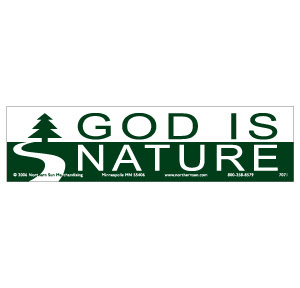In various religions God is seen as the giver and sustainer of life; on planet Earth, mother nature which provides water, oxygen, nourishment is our sustainer of life. God is in nature sustaining us on a daily basis. As Coledridge states "Himself in all, and all things in himself. Great universal Teacher!" As the Christian religion teaches, that the Holy Spirit is within those who accept him, with that same breadth I believe that God is in nature and represents himself to us on a daily basis by sustaining us. "The Frost performs its secret ministry"
Often, when we do harm against nature, when we "sin" against nature we reap adverse effects on us and fellow human kind. Many religions, such as Christianity teach that when followers sin, there are consequences which have to be met. Could this be the reason for starvation? persistent and increasing carcinogenic compounds in our environment? epidemic? Just some food for thought!
.jpg)
No comments:
Post a Comment